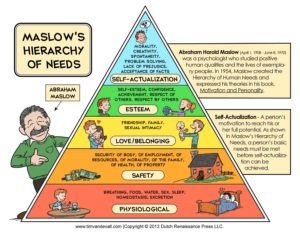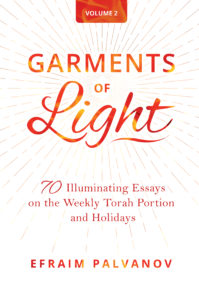In this week’s parasha, Re’eh, we read about some of the Torah’s outstanding ethics dealing with finance, charity, and social welfare. The Torah was way ahead of its time in this regard. For instance, every seventh year (the shemittah, or Sabbatical), outstanding loans were cancelled, and every 50th year (the yovel, or Jubilee) rural lands would transfer back to their original ancestral owners. Loans were given out freely, without interest. Every farmer had to leave a corner of his fields unharvested for the poor and needy. There were a series of tithes to support the priesthood, the Holy Temple, and pilgrimages, as well as for the poor, orphaned, and widowed. On top of that, the Torah commands each person to be charitable and to contribute even more whenever the need arises. We read in this week’s parasha:
If there be among you a needy man, one of your brethren, within any of your gates, in your land which the Lord, your God, gives you, you shall not harden your heart, nor shut your hand from your needy brother; but you shall surely open your hand to him… (Deuteronomy 15:7-8)
We find that, of all the mitzvot in the Torah, it is these that deal with charity that Jews have been especially careful with throughout history. Regardless of level of observance or denomination, Jews across the spectrum of time and place have opened their hands generously to help their fellows, both Jewish and gentile. Today, of the world’s top 20 philanthropists, seven are Jews (Michael Dell, James Simons, Mark Zuckerberg, Michael Bloomberg, George Kaiser, Eli Broad, and—gasp—George Soros). Jews make up more than a third of this list, despite Jews making up just 0.2% of the world’s population.
In ancient times, Jews from all over the world regularly sent money for the upkeep of Jerusalem and the Temple. The Romans knew this and it was a key reason that they destroyed the Temple when they did. The Romans had just come out of an expensive civil war that ended in 69 CE, and they badly needed funds. The Jerusalem Temple was the place to get them. Jews often overlook the role of economics in this tragedy. The Arch of Titus still standing in Rome today famously commemorates how the Romans took the Temple riches. A lot of those funds (not to mention enslaved Jews) were used to construct the Coliseum!
This didn’t stop Jews sending money to Israel. Throughout history, money was collected and sent to support the Yishuv, the Jewish community in the Holy Land. Jews in exile recognized that their brethren living under foreign rule in the Holy Land were making a huge sacrifice and fulfilling a major mitzvah (perhaps the major mitzvah). By supporting those communities, they would be able to participate in the mitzvah of settling the Holy Land as well.
These charities were eventually organized into a special fund called the halukka, which made sure to distribute the money fairly. One third went to the widows, orphans, and impoverished; one third went to Torah scholars and yeshiva students; and the final third was for other communal needs and building expenses. Special envoys, called meshulachim, were sent out to travel throughout the diaspora and collect for the halukka fund. In the 18th century, they invented the now-famous “tzedakah box”, allowing diaspora Jews to throw in their coins over the course of the year so that the meshulach would have something to take home when he arrives.
There was actually a very interesting halakhic debate regarding where diaspora Jews should contribute funds first: their own diaspora communities, or for the community in Israel. The debate is based on the verse in this week’s parasha, quoted above, that says we should open our hands to the needy “within any of your gates, in your land which the Lord, your God, gives you.” Some rabbinic authorities say this means you should first give charity to those within your gates, in your own community. Others point to the words that follow in the verse saying the charity should go to those in the land that God gave us—meaning Israel. Rav Yosef Karo (1488-1575) ruled with the latter in the Shulchan Arukh, though it should be noted that he lived in Tzfat among the Old Yishuv.
Of course, Jews always made sure the members of their own community were provided for, wherever they lived. The gmach (a contraction of gemilut chassadim, “acts of kindness”) was a key institution for this. The gmach was originally an interest-free loan fund. Such funds still exist in pretty much every major Jewish community in the world (there are over 500 in the USA alone). Over time, gmachs developed for other things as well, including clothes (especially wedding dresses), books, baby needs, and furniture.
Such innovations are a major reason why Jewish communities have always thrived. Despite the external pressures and persecutions, Jews survived and prospered. Whereas other communities were (and still are) plagued by internecine violence, Jews tended to work together—especially when it came to helping the needy. While Jewish views have always been diverse and debate was at the heart of each community, when it came to taking care of each other, Jews did that exceptionally well.
I recall my grandmother telling me how when she was a little girl, her mother would wake her up before dawn every Friday morning to start baking challahs for all the needy in their community (in Kokand, Uzbekistan). They then distributed the loaves and made sure every family had bread for Shabbat. On the other side of my family is Rabbi Shlomo Moussaieff, who co-founded and built much of Jerusalem’s Bukharian Quarter. When he made aliyah and settled in Jerusalem in 1888, he didn’t just build a home for himself, but also for 25 poor families. He went on to construct four synagogues, a mikveh, and even a museum. Today, the Moussaieff Synagogue is still among the most famous in Jerusalem, with eight different minyanim serving 3000 regulars.
Such stories can be heard in every Jewish family. And it is because of this charitable behaviour specifically that God has blessed the Jewish people, as we read multiple times in our parasha (Deuteronomy 14:29, 15:10). We are also told that:
the Lord, your God, will bless you, as He promised you; and you shall lend to many nations, but you shall not borrow; and you shall rule over many nations, but they shall not rule over you. (Deuteronomy 15:6)
The Torah prophesied that Jews would, among other things, be highly successful bankers who lend to many nations. And Jews would become influential in politics as well, holding positions of power. Unfortunately, many gentiles have seen within this development some kind of evil conspiracy, God forbid. In reality, this is simply the fulfilment of ancient prophecy and the realization of God’s blessing. Those wealthy and influential Jews have, for the most part, sought only good for the world. This is particularly true about the Rothschilds, who are at the centre of most anti-Semitic conspiracies.
In fact, the Rothschilds played key roles in financing the Industrial Revolution, laying the first rail networks, building hospitals and schools, investing in science, and supporting the arts. Nathan Rothschild, often vilified for supposedly making money from war speculation, was actually a generous philanthropist who played a key role in the abolition of slavery. His son, Lionel, created the largest private relief fund during the Great Irish Famine. His cousin Edmond invested countless sums to make the Holy Land a habitable place, paying for the drainage of swamps, the laying down of the first plumbing and electrical grids, and building the infrastructure necessary to improve the lives of both Jews and Arabs.
Across the Atlantic, another wealthy Jewish family was making a difference: the Guggenheims. Daniel Guggenheim invested huge sums in the development of aviation technology, while his brother Simon started a scholarship fund that has since given out over $250 million to support education for all. Indeed, American Jews have a long history of philanthropy, dating back to the first Jews that came to the New World. Few remember the incredible story of Haym Solomon (1740-1785).
Solomon was born in Poland, the son of a Sephardic rabbi, and settled in New York as a young man, where he went on to make a fortune. He also joined the Sons of Liberty and was a vital figure in the American Revolution. It is estimated that he gave the equivalent of what would today be $40 billion to help establish the United States of America. This includes the crucial funds for the Battle of Yorktown, which ended the Revolution in America’s favour. He gave so much of his wealth that he died in poverty. Some scholars have suggested the US would not exist without Haym Solomon.
Many Jews in America followed his example. Judah Touro (1775-1854) paid for some of America’s first hospitals, schools, orphanages, and cemeteries. When he died, he left half a million dollars to charity—an unheard-of sum in those days—of which two-thirds went to non-Jewish causes. The Yulee family helped abolish slavery and laid Florida’s railroads. Nathan Strauss (1848-1931, of Macy’s fame) fed millions of hungry mouths and took care of America’s orphans, saying “The world is my country, to do good is my religion.” Levi Strauss (1831-1908, of jeans fame) funded multiple orphanages, synagogues, and universities in California.
The philanthropic tradition of America’s Jews continues to this day. Larry Ellison, once among the richest men in the world, has donated hundreds of millions to charity, including a whopping $200 million donation to the University of Southern California for a new cancer research centre. Bernie Marcus and Arthur Blank, founders of Home Depot, have given over $200 million for environmental causes, and millions more for medical research, military veterans, and children’s causes. The Fishers, founders of clothing giant The Gap, give $20 million each year to Teach for America in support of education.
The same is true all over the world. Mathilde and Arthur Krim played key roles in ending apartheid in South Africa. The Sassoons built an array of public institutions across India and the Far East, while Germany’s Lina Morgenstern (1830-1909) brought the world kindergartens and soup kitchens. The largest private donation to a museum in British history was given by a Jew, Sammy Ofer. In Russia, Wolf Wissotzky (1824-1904, of tea fame) left over a million rubles to charity, the equivalent of about $2 billion today. Sir Isaac Wolfson (1897-1991) of Scotland gave almost everything he had to charity, saying “No man should have more than £100,000. The rest should go to charity.” There are countless other great names in Jewish philanthropy, from Moses Montefiore (who made modern Israel possible) to Sami Rohr (personally paying the salaries of over 500 rabbis) and Lev Leviev (who still supports hundreds of communities around the world).
Of course, Jewish contributions are not only financial, but span the gamut of science, technology, medicine, law, ethics, philosophy, and beyond. Waksman and Schatz discovered the first antibiotics, while Baruch Bloomberg created what is considered the first cancer vaccine, resulting in a reduction of liver cancer deaths by 90%! Like Jonas Salk before him (who developed the polio vaccine), Bloomberg did not patent his vaccine and gave it away freely to save as many lives as possible. No list could be complete without mention of Waldemar Haffkine (1860-1930), who developed the first cholera and bubonic plague vaccines, saving so many lives that Lord Joseph Lister called him the “saviour of humanity”. There are innumerable others.
Here we have focused specifically on monetary charity, which brings us back to this week’s parasha, and God’s blessing to His people. The Torah told us long ago that, despite being constantly persecuted and exiled to the four corners of the globe, the Jewish people would nonetheless prosper and tremendously influence the world. Incredibly, we have seen this ancient prophecy and blessing immaculately realized over the ages. Moses himself instructed the people that, if their faith is ever in doubt:
For ask now of the earliest days, which were before you, since the day that God created man upon the earth, and from the one end of Heaven unto the other, has there ever been such a great thing, or has something even been heard like it? (Deuteronomy 4:32)
This piece of advice is so important that Moses repeats it later on, reminding the nation to “Remember the days of old, understand the years of former generations…” (Deuteronomy 32:7) All it takes is one honest look through history to see the truth. Therein lies the greatest proof.
Shabbat Shalom!




